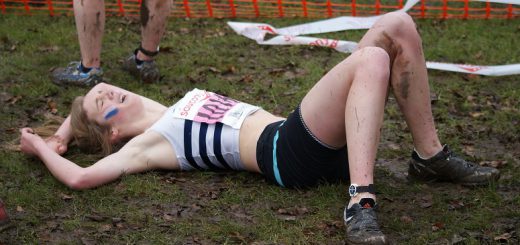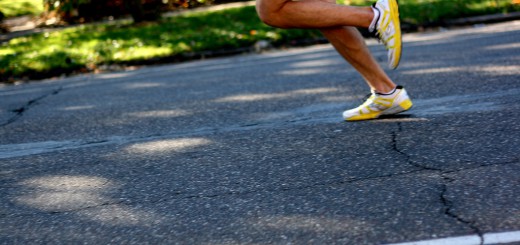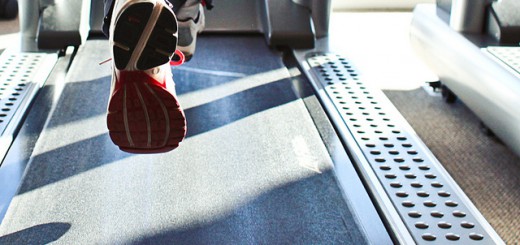Signs Of Overtraining for Runners
One of the hardest things about following a training plan is often not the training itself, but it is acknowledging the signs of overtraining and knowing when you need to take a step-back and allow for adequate rest and recovery.
When you are training well and it feels like you are making progress it can be very difficult to ease off because you don’t want to lose the momentum that you’ve built up over the previous few weeks. If you are anything like me (and I hope you’re not), the thought of reducing your training can sometimes fill your head with thoughts of getting slow, getting fat, losing fitness; generally undoing all the good-work that you have done so far. And then, there’s the prospect of missing out on all those endorphins!
It took a few years’ experience, and a handful of over-use injuries, before I realised that rest and recovery should be treated with the same respect as any of your other sessions, be it your speed work or tempo runs. One of the primary reasons why I think these plans work, and why they worked for me, was that the speed sessions facilitate you training at an intense level that is tailored to your target time: in order to get the most out of these sessions it is important that you are rested and able to give it your all on the days that you need to. This means paying attention to some of these tell-tale signs of overtraining
What are Key Signs of Overtraining
Little Niggles
At the onset of a little niggle, it can be very tempting to just try and get through one more session. It’s easy to tell yourself that you’ll rest tomorrow but all too often, tomorrow never comes. If you have a niggle then listen to your body and rest it. You don’t need to not do exercise; try some cross-training to keep your fitness levels up.
Feeling Run-down
If you are feeling like it’s taking an unusual amount of time to get your legs going and/ or your legs are feeling heavy then it could be a sign that you are over-doing it. Ask yourself: Am I eating the right foods? Am I getting enough glycogen and resting enough between sessions? Regular exercise can make significant demands on your energy systems, which are needed to repair muscles and help with recovery. If you aren’t supporting this process nutritionally then you are leaving yourself susceptible to colds and feelings of exhaustion. I have lost count of the number of times where I have done a particularly tough training session and then picked up a cold within a day or so. It’s because I wasn’t supporting my training nutritionally and therefore my immune system wasn’t functioning at 100%.
Feeling like this is one of the classic signs of overtraining and perhaps an indicator that you need to take a couple of days off running and give yourself and your legs some time to freshen up.
Feeling Unusually Down in the Dumps
As any runner knows, post exercise endorphins are a wonderful thing. Highly addictive, the need for an injection of “runners-high” has got me out the door in all sorts of horrible weather and no matter what the elements, I’ve never returned home feeling worse than when I left the house. But to borrow a phrase from an industry that deals in endorphin inducement of more nefarious means, when the fun stops, stop. If you are not enjoying your training and it’s becoming a bit of a chore, or you are losing motivation then this is a good time to stop and re-focus or take a break from things. Maybe you need to train for a different event or distance? Maybe you need to let yourself go for a week and gorge on Toblerone? Or maybe you just want to forget about running for a while? If this is the case, then it’s a good time to switch off and come back and re-focus when you are ready. Throughout the training plans you should feel energized and committed, it shouldn’t feel like a chore.
Adequate rest and recovery is not only required for your physical well-being but also psychological. It’s so easy for groundhog-day training to set in and so taking a break when your body tells you and don’t ignore the warning signs of overtraining.
So, How often Do I Need to Take a Break?
The training plans on this site have factored in a cyclic recovery week, so after every 3 weeks of training it’s advisable to reduce your intensity for a week to allow your body and mind to recover. In addition it is worth considering a complete break after a few rotations of the plan to allow you to recover fully and re-focus your efforts if you need to.
Assuming you are pursuing the right plan for your current ability (i.e., you can run a km at the target race pace to being with) then it is entirely possible that you can reach your PB target within 8-12 weeks of starting it. If, after a few rotations, you feel like you are plateauing and not improving then this is maybe a good time to take a step-back and re-focus.











Hi Matt. I see you don’t have many articles about injuries and injury recovery. Would you be interested in guest posts fact-checked by a specialist osteopath? Contact me if so. Thanks
Is sort of happening to me. I felt a strange pain above my knee, which lasted a few days. Took a week off and came back but I’m limiting my running to at most 2 miles with lots of rest. I feel good thankfully.
Hello Matt,
How do you usually deal with running related injuries prior to race? I had been running recently with a runner’s knee, and it is killing me as I can’t afford to ease up right now, and don’t have the possibilities to cross-train too much.
Best regards,
Magnus
Great article! This helps me a lot. Thanks!
Thanks a million for this Article! Really Helpful
Hi Edward, glad you found it useful!
Cheers